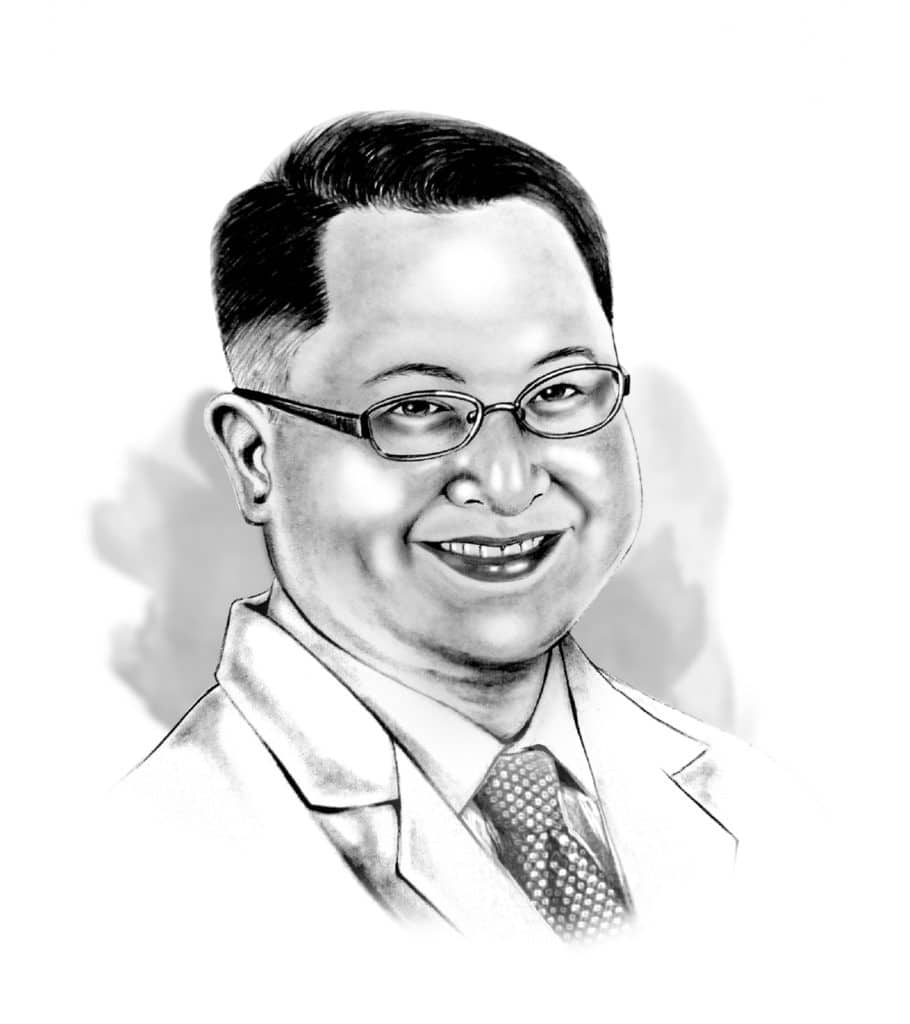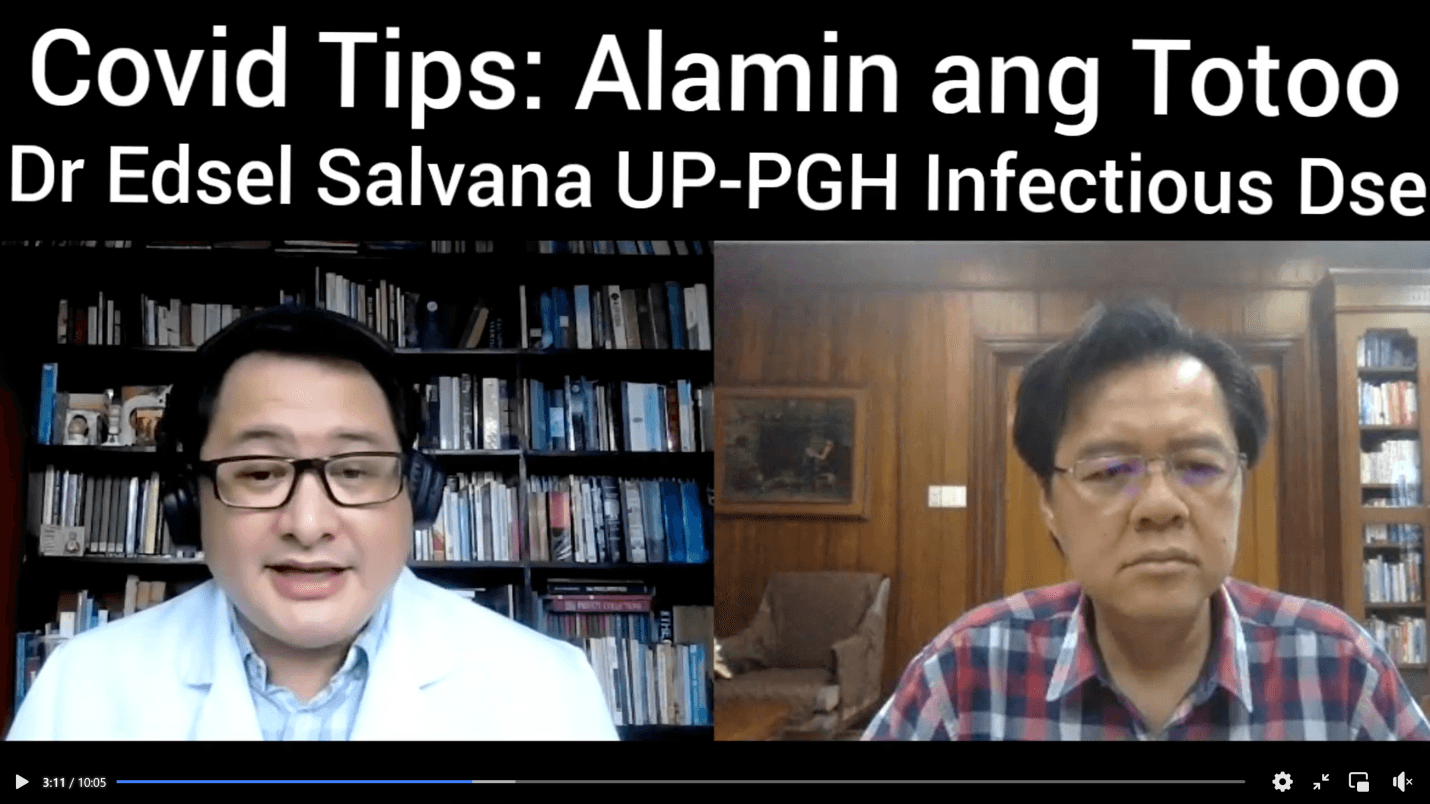When doctors get sick
Because doctors are also just human
At A Glance
- Even now, when he is most vulnerable, Dr. Willie Ong is still thinking about the Filipino people, producing videos to educate people about cancer, and using his illness to spread awareness.
CLINICAL MATTERS

Many people know Dr. Willie Ong for his popular medical posts which are easy to understand and very informative for the general public. Recently, he announced that he had cancer – an inoperable sarcoma in his chest – for which he was receiving his second cycle of chemotherapy. The outpouring of love and sympathy from the public was as expected for a person who had dedicated his life to helping other people.
I first met Sir Willie when I was a med student. His “Medicine Blue Book” was a brilliant little handbook that made our lives so much easier since it distilled an incredible amount of medical information into a compact package that was readily applicable as we saw and admitted patients. Perhaps this presaged his ability to distill complicated medical information into easily digestible videos that earned him millions of followers. Since then, we occasionally encountered each other from time to time throughout my medical career. I had my first online conversation with him during the Dengvaxia controversy in 2017, as he tried to help the public make sense of the controversy. He was particularly concerned about the children who got the vaccine and their parents who had to deal with so much uncertainty. True to form, he immediately advocated for them and demanded accountability from DOH and Sanofi.
Meanwhile, I had begun to post about what the actual risk of severe dengue was among the vaccine recipients and which among them were actually at risk. If a child got inoculated with Dengvaxia and was already seropositive, then there shouldn’t be any additional risk. This simple fact was being lost in the noise and furor. In fact, seropositive Dengvaxia recipients (about 87 percent of the recipients based on seroprevalence studies) were actually protected from severe dengue if they completed the two doses, with an over 90 percent decreased risk of hospitalization. For seronegative recipients, the added risk in terms of increased probability of severe dengue was about two out of 1000 dengue infections in seronegative recipients – concerning, but not very high. When Dr. Ong read my posts, he reached out to me and asked if it was okay to share my explanation. I readily said yes and I was very happy that someone understood what I was trying to do to mitigate the panic.
During the pandemic, Dr. Ong reached out to me to do a vlog to answer some of the frequently asked questions about Covid-19. True to form, he was doing this to help Filipinos understand what was going on and in order to lower their anxiety levels. We had a long conversation about what we knew about Covid-19 at that time and he posted it on his social media accounts, where these have garnered cumulatively over a million views. Comments on the videos clearly show that people listen to Dr. Ong and that they do appreciate his efforts to demystify health and help people cope with uncertainty. We had many more conversations throughout the pandemic when he needed clarifications on variants, vaccines, and treatment. These were always insightful. I understood that all he wanted was to better communicate the science to his millions of followers and so I was very happy to help.

When he decided to run for Vice President under then Manila Mayor Isko Moreno’s party, I was concerned that he would be attacked and vilified by trolls. He already faced so many attacks when he ran for the Senate and I was sure these would be much worse this time around.
Nevertheless, he braved the trolls stoically during the campaign. Only much later, when he got his cancer diagnosis, did it become clear just how deeply hurt he was by all the falsehoods and accusations he faced, not just from the public, but even from some fellow doctors that he considered his friends. He even mentioned that the stress of the campaign and the hateful trolls may have contributed to the development of his cancer. I truly believe the stress made him more susceptible to cancer. I faced similar political attacks from colleagues and friends when I was helping the government with the Covid-19 pandemic and I can only imaging how much worse his experience was since he was running for national office. I gave him my unqualified support and my vote since I believed in his mission and I knew he was doing it out of love for our country and our people. He is now on his second cycle of chemotherapy and we are all wishing for a miracle, even as he now declared he is running for the Senate anew.
If you are a doctor, the medical knowledge you have is a double-edged sword when you get sick. On one hand, you know exactly what is going on. You know from your colleagues who are the best doctors that can take care of you. When I thought I had Covid-19 early in the pandemic after I was exposed to two of my patients who ended up dying of SARS-CoV-2 before we routinely used N95 masks, I was scared to death. I immediately admitted myself to the hospital and called my colleagues, who took excellent care of me. Luckily, I tested negative, but the days until that test came out were filled with dread. I knew what the virus could do to my lungs and I knew what would happen if I started getting short of breath. I would end up on the ventilator and my chances of dying would be about 50 percent. Fortunately, close monitoring of my lungs revealed no such processes and I was discharged home to complete isolation, which I still did despite the negative test because I also know that tests can be wrong and I did not want to expose anyone else.
On the other hand, if it is for something terrible like cancer, you do know exactly what your chances are of recovery and the long, difficult road with no guarantee of success. In Dr. Ong’s case, an inoperable sarcoma has a very bad prognosis, but I join everyone in storming the heavens with prayers for a miracle. Even now, when he is most vulnerable, Dr. Ong is still thinking about the Filipino people, producing videos to educate people about cancer, and using his illness to spread awareness. He is using the opportunity to tell Filipinos once again that he truly loves them despite everything he is going through. I hope God listens to our prayers, because the Philippines needs Dr. Willie Ong more than ever.